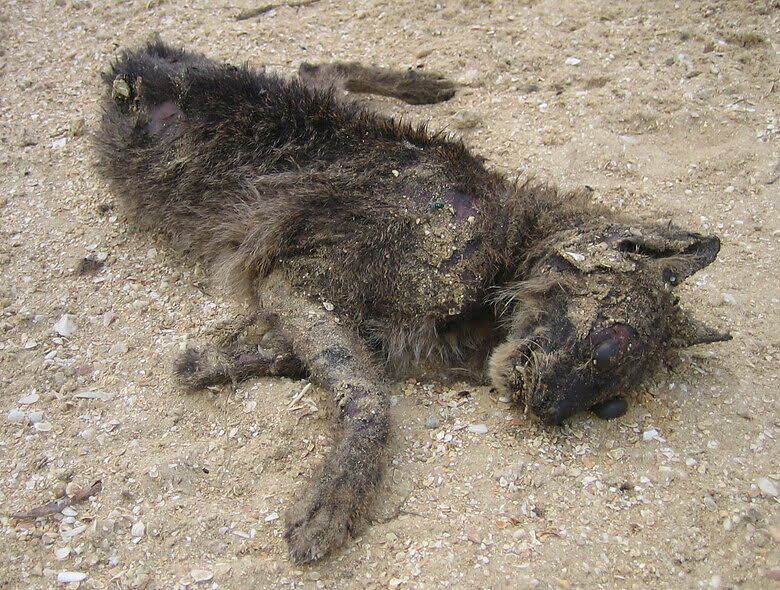When most people think about dealing with dead animals or even nuisance animals that are alive, it is common to put dogs and cats in a separate category than wildlife since they are frequently pets. But does the fact that an animal is a cat mean that you should take different actions if you find a dead critter? It does to some extent, but the most important factor is where the dead cat is.
Remember that you never want to delay the process of having a dead cat removed, no matter where it is. As with all other dead animals, the carcass will begin to decompose quickly and smell very bad. It can also attract insects and scavengers as well as spread disease.
Dead Cats on Public Property
Assuming that you find a dead cat on public property, then your city or county will likely take care of removing it without a problem. This is included in the local services thanks to its implications for public safety and the well-being of the community as a whole, due to the risk of disease from the cat or from animals that come scavenge it.
Interestingly, each county and city tends to assign a slightly different department to animal removal responsibilities. The same department may be in charge of removing cats as removing other dead animals. Just some of the departments that may be involved include beautification, sanitation, environmental control, and animal control.
You will typically get the quickest response if you directly contact the department that is responsible. Some cities may even have an online form you can fill out instead of having to call them. If you cannot find direct contact information, then your city services should be able to connect you.
In the case of dead cats on public property, the city would be the one to attempt to contact the family, if it is not assumed to be a stray. The amount of effort put in varies by city, based on policies and resources available. Some will check for tags on the collar and microchips while others will do just one or neither.

Dead Cats on Private Property
It is almost universal that your city or country will not remove a dead animal from private property, except in specific circumstances. Those typically require situations like suspected rabies or another disease or an endangered animal. As such, they are unlikely to collect a dead cat that is on private property.
You can still contact your city’s services to confirm that this is the case, as you may be pleasantly surprised. Depending on where you live, you may also be able to (carefully) move the dead cat to public property, which could be as close as the curb, then have it removed. Just note that this is not always an option and when it is an option, it is not always a free service.
In most cases, if you find a dead cat on private property, you will have to either pay for someone to remove it or take care of it yourself. Many local animal removal companies will also remove cats, but you will likely have to pay for this service.
Can You Handle It Yourself?
Because cats are on the smaller side, it is more practical for a homeowner to remove a dead one themselves than it would be for a larger one. If you do so, however, you need to take extra precautions to avoid injuring yourself or contracting a disease. Always wear sturdy protective gloves and do your best to avoid directly coming into contact with the cat, especially its bodily fluids. Always double or triple bag the dead cat in sturdy garbage bags.
Your options for disposing of the dead cat will vary slightly based on your local laws. As mentioned, you may be able to just move it to the curb or a public place then notify your city. Because cats are small, some areas also offer the option of putting them on the curb with the rest of your garbage and the waste removal services will take care of it for you. Do not just assume this is the case, however, since many areas restrict the animals you can dispose of in this way. You may also be able to bury or burn the dead cat.

Can You Notify the Owner?
Legally, you have no obligation to notify the owner of a dead cat, at least in nearly every situation. However, it is the right thing to do to make an attempt to find them, if you do not think the cat is a stray. At the least, check for a tag with contact information. You can also see if a local vet or other organization can check for a microchip.
When It Is Your Pet Cat
In the case of a pet cat, you could also take advantage of one of the various services that removes dead pets, most of which will cremate your cat for you.
